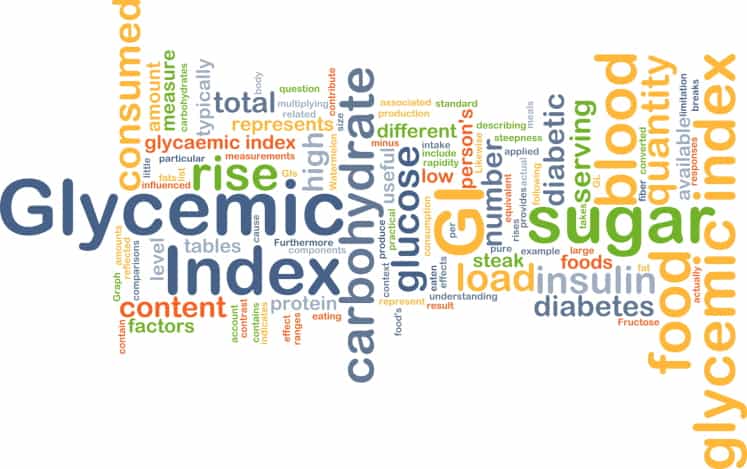
The body uses glucose, and blood glucose levels reflect the readily available energy supply for exercise. If glucose levels drop due to fast depletion (i.e. one’s glycogen stores), the athlete is said to “hit the wall.” The rate at which this occurs depends in part on the type of carbohydrate consumed before, during, or after the exercise.
Different foods increase the blood glucose levels to different degrees, as we have discussed in previous weeks. The degree of increase in blood glucose levels after consuming a food containing carbohydrates is called its Glycemic Index (GI). Whether they are high, medium, or low, the higher the GI, the faster the glucose is absorbed, used, and depleted in the body.
Many factors can influence the GI of a food. For example: the structure of the carbohydrate, the size of the food particle, the degree of food processing to the carbohydrate, the content and timing of the previous meal, and consumption of other nutrients at the same time, as fats, and fiber.
The more refined the carbohydrate in the food, the higher the GI. Examples of refined foods with high GI’s are processed wheat flour, crackers, rice, noodles, etc. In contrast, high fiber, high fat, and high protein foods take longer to breakdown, and therefore, have lower GI’s.
How do you use this information? Complex carbohydrates with low to moderate GI’s should be consumed before exercise to slowly raise and maintain blood glucose levels during the workout. In contrast, carbohydrates with high GI’s can be consumed during and after workouts to maintain blood glucose in the cell or quickly restore the glycogen stores.
This information and more is available for the glycemic indexes of common foods at the Gatorade Sports Science Institute.
For questions on carbohydrates and how we process this nutrient, please contact the dietitian at Elite Sports Clubs.
Schedule a Nutrition ConsultationWritten by Rita Larsen, RDN, CD; Elite Sports Clubs Nutrition Educator & Diet Counselor
Rita is certified in Positive Psychology, University of Penn; has a BS in Dietetics from Kansas State University; and an Internship and Masters at the Indiana University Medical Center.
